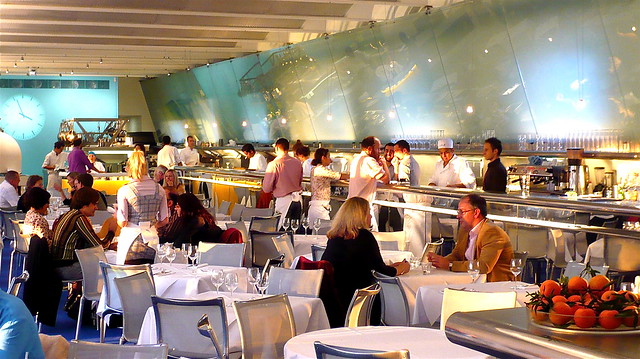Since the start of 2019 consumers have seen a number of growing restaurant trends in the UK, with vegan and vegetarian meals being one of the most popular among diners. CBD-infused foods are also seeing an increase in demand in restaurants. The country is ever more aware of the amount of food that is wasted and the effect food and packaging has on the planet, and more people dining at home instead of eating out at restaurants.
Since the start of 2019 consumers have seen a number of growing restaurant trends in the UK, with vegan and vegetarian meals being one of the most popular among diners. CBD-infused foods are also seeing an increase in demand in restaurants. The country is ever more aware of the amount of food that is wasted and the effect food and packaging has on the planet, and more people dining at home instead of eating out at restaurants.
Verdict Foodservice looks at some of the fastest-growing restaurant trends hitting UK restaurants.
Plant-based dining
There has been a growing demand for plant-based foods in restaurants in the UK, with a quarter of UK diners eating no meat or fish in their meals as more people associate a vegetarian diet with health, fitness and well-being.
Many restaurants and fast-food chains are jumping on the plant-based wave and offering customers meat-free alternatives, for example, fast food chain Burger King brought the Impossible Whopper in the UK earlier this year.
American-themed restaurant TGI Fridays added the ‘bleeding’ vegan burger in January of this year, and as By Chloe is using crispy tofu as a fish alternative.
Tackling food waste
More than 500,000 tonnes of food is wasted in restaurants, pubs hotels and quick service restaurants in the UK, the equivalent of almost one billion average plates of food. More restaurants across the UK are taking on initiatives to crack down on food waste to reach the UN’s Sustainable Development Goal 12.3 to halve food waste by 2030.
Some of the establishments doing this are Greene King, the first pub company to pledge to send zero waste to landfill by 2020; removing 30 million plastic straws from use each year as well as reducing food waste from carvery meals across the country.
CBD-infused foods
Research by The Grocer reveals that a third of consumers in the UK would buy CBD-infused food and drink, and the Cannabis Trades Association UK found that the number of cannabidiol consumers doubled from 125,000 in 2017 to 250,000 in 2018.
International frozen dessert chain Yogoland serves a hemp matcha frozen yoghurt made from hemp plant containing 40% CBD oil. London-based Plant Hub has many items on its menu that contain CBD-infused food, including granola energy bars, salted peanuts, banana bread and coconut-flavoured biscuits.
Online delivery
According to market research organisation NPD, consumer spend on restaurant food delivery could grow by 10% in 2019 to reach £5bn.
More people are now eating at home and online delivery services such as Deliveroo are extending their delivery services to a wider range of foodservice establishments. The UK-based online food delivery service is giving consumers more of an excuse to stay indoors to enjoy their favourite meals instead of going out to eat.
More restaurants and fast-food chains are becoming aware of the increase for home delivery, with establishments such as Nando’s and Zizzi offering customers food prepared in their restaurants that can be eaten at home.
Blue Planet effect
BBC One’s Blue Planet showed consumers the effect plastic is having on the environment, with Waitrose & Partner’s research suggesting that 88% of people who watched the documentary changed their behaviour towards single-use plastic consumption.
Restaurants across the UK are now becoming more environmentally aware with many of them stopping the use of plastic straws in their restaurants. Fast food chain McDonald’s wants to reduce the amount of single-use plastics in the UK, and global coffeehouse chain Starbucks has committed to eliminating single-use plastic straws by introducing straw-less lids globally by 2020.




